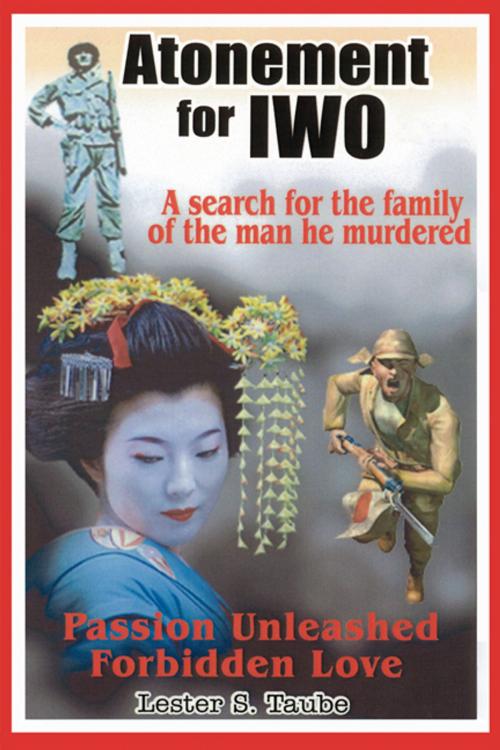| Author: | Lester S. Taube | ISBN: | 9781771431194 |
| Publisher: | CCB Publishing | Publication: | June 26, 2014 |
| Imprint: | CCB Publishing | Language: | English |
| Author: | Lester S. Taube |
| ISBN: | 9781771431194 |
| Publisher: | CCB Publishing |
| Publication: | June 26, 2014 |
| Imprint: | CCB Publishing |
| Language: | English |
During World War II, Keith Masters, an infantry officer, engages four Japanese in a cave on Iwo Jima, killing three outright. The fourth, a sergeant, is mortally wounded, but is finished off by one of Masters’ men. Twenty years later, Masters, a bitter failure with work and family, suffers a heart attack, and develops the fixation that his misfortunes are due to being responsible for what he concludes is the murder of the Japanese sergeant. He goes to Japan to seek the family of the dead man, to help in some small way to overcome their loss. There, he becomes involved with the sergeant's wife, Kimiko, a former prostitute, who, to his surprise, has become one of the wealthiest women in the country. Her beautiful, modern minded daughter, Hiroko, offers herself to keep Masters away from her mother. Worst of all, Kimiko’s son, Ichiro, is awaiting execution for the assassination of a politician. Now Masters has an opportunity to atone for his sin. About the Author: Lester Taube was born of Russian and Lithuanian immigrants in Trenton, New Jersey. He began soldiering in a horse artillery regiment while in his teens, where in four years he rose from the grade of private to the exalted rank of private first class. During World War II, he became an infantry platoon leader and participated in operations in the Bismarck Archipelago, was attached to the 3rd Marines for action on Iwo Jima, and finally combat on Okinawa, the last battle of the war. After leaving the army and recuperating from wounds and malaria, he became general manager of a 400 employee electronic company in California, manager of a 450 employee paper stock company in Pennsylvania, and finally opened a logging and pulpwood cutting operation in Canada. Called back to duty during the Korea Police Action, he served as an advisor to the Turkish army, then as an intelligence officer and company commander in Korea. During the Vietnam period, he was stationed in France and Germany as a general staff officer working in intelligence and war plans. Prior to retirement as a full colonel, he moved to a small village in the mountains of North Tyrol, Austria, and kept a boat for five years on the Côte d’Azur, France. He began writing novels while in France, and after producing four books, which were published in a number of countries, and selling two for motion pictures, he stopped - “as there was heavy soldiering to do and children to raise”. Returning to the U.S. after 13 years overseas, he worked as an economic development specialist for the State of New Jersey helping companies move to New Jersey or expand therein. He has four children, all born in different countries.
During World War II, Keith Masters, an infantry officer, engages four Japanese in a cave on Iwo Jima, killing three outright. The fourth, a sergeant, is mortally wounded, but is finished off by one of Masters’ men. Twenty years later, Masters, a bitter failure with work and family, suffers a heart attack, and develops the fixation that his misfortunes are due to being responsible for what he concludes is the murder of the Japanese sergeant. He goes to Japan to seek the family of the dead man, to help in some small way to overcome their loss. There, he becomes involved with the sergeant's wife, Kimiko, a former prostitute, who, to his surprise, has become one of the wealthiest women in the country. Her beautiful, modern minded daughter, Hiroko, offers herself to keep Masters away from her mother. Worst of all, Kimiko’s son, Ichiro, is awaiting execution for the assassination of a politician. Now Masters has an opportunity to atone for his sin. About the Author: Lester Taube was born of Russian and Lithuanian immigrants in Trenton, New Jersey. He began soldiering in a horse artillery regiment while in his teens, where in four years he rose from the grade of private to the exalted rank of private first class. During World War II, he became an infantry platoon leader and participated in operations in the Bismarck Archipelago, was attached to the 3rd Marines for action on Iwo Jima, and finally combat on Okinawa, the last battle of the war. After leaving the army and recuperating from wounds and malaria, he became general manager of a 400 employee electronic company in California, manager of a 450 employee paper stock company in Pennsylvania, and finally opened a logging and pulpwood cutting operation in Canada. Called back to duty during the Korea Police Action, he served as an advisor to the Turkish army, then as an intelligence officer and company commander in Korea. During the Vietnam period, he was stationed in France and Germany as a general staff officer working in intelligence and war plans. Prior to retirement as a full colonel, he moved to a small village in the mountains of North Tyrol, Austria, and kept a boat for five years on the Côte d’Azur, France. He began writing novels while in France, and after producing four books, which were published in a number of countries, and selling two for motion pictures, he stopped - “as there was heavy soldiering to do and children to raise”. Returning to the U.S. after 13 years overseas, he worked as an economic development specialist for the State of New Jersey helping companies move to New Jersey or expand therein. He has four children, all born in different countries.















